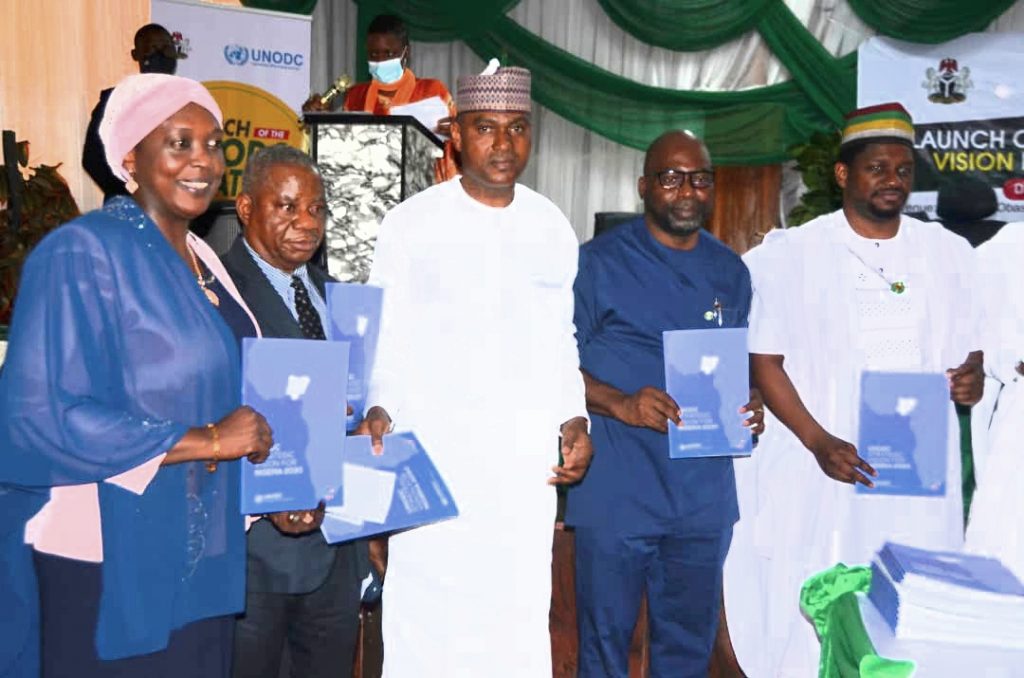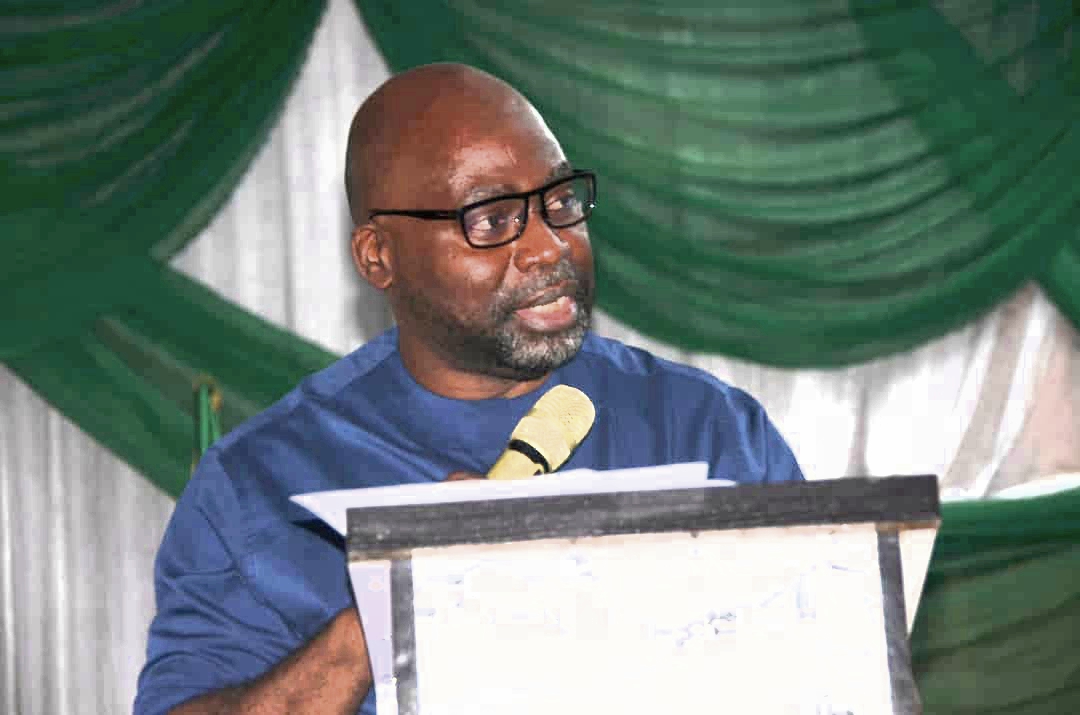By Chimezie Godfrey
The Chairman of the Independent Corrupt Practices and Other Related Offences Commission (ICPC) has expressed the anti-corruption agency’s strong support for the United Nations Office on Drugs and Crime’s (UNODC) Strategic Vision for Nigeria 2030.
The ICPC Chairman, Prof. Bolaji Owasanoye, SAN gave the backing of the agency for UNODC Strategic Vision for Nigeria 2030 at its launch on Friday by the Attorney General and Minister of Justice, Abubakar Malami, SAN.
The UNODC had in collaboration with government stakeholders, civil society and academia, private sector and development partners developed the strategic vision to assist Nigeria to achieve her Sustainable Development Goals (SDGs) as well as combat corruption, terrorism, economic and financial crimes, and drugs.
Prof. Owasanoye, who commended the UNODC for the Strategic Vision in his goodwill message, noted that it would strengthen crime prevention, enhance justice, address organized crime, ensure a balanced response to drugs, and improve the rule of law.

He said, “The UNODC thematic areas are the global drug problem; organized crime; corruption and economic crime; terrorism; and crime prevention and criminal justice. A strategic vision that addresses these thematic areas in the context of Nigeria is directly relevant to the mandate of the ICPC as outlined in section 6 of the ICPC Act.
“I therefore commend the UNODC for the Strategic Vision for Nigeria 2030. The ICPC will continue to work with UNODC and other stakeholders in the justice sector to realise our shared vision of a crime free society.”
He stated that the UNODC mission would provide more safety to Nigerians and Africans, government and institutions from drugs, crime, corruption, terrorism and illicit financial flows.
The ICPC boss, however, warned that corruption and illicit financial flows may threaten Nigeria’s and Africa’s ability to realize the SDGs if not tackled.
“The illicit and sometimes criminal consignment of resources to foreign jurisdictions undermines domestic resource mobilization. Beneficiaries of corruption and enablers of illicit financial flows undermine governments and state institutions.
“A vision and plan of action underwriting the resilience of vital institutions, including anti-corruption agencies and justice system are critical to the achievement of the core SDG vision of leaving no one behind,” the ICPC Chairman added.
In his keynote address, the Attorney General and Minister of Justice, Abubakar Malami, also expressed the support of the Federal Government for the UNODC’s Nigeria 2030 Strategic Vision.
The Minister, who was represented by the acting Solicitor-General of the Federation and Permanent Secretary of the Federal Ministry of Justice, Benjamin Okolo, conveyed the Government’s assurance in implementing the strategic vision.
In her goodwill message, the Executive Director of UNODC, Mrs. Ghada Waly, emphasized the need to strengthen Nigerian laws to address drugs, economic and financial crimes, corruption and terrorism.
Waly, who was represented by UNODC’s Representative in Nigeria, Dr. Oliver Stolpe, said the United Nations body would continue to work hand-in-hand with its counterpart in the Nigerian Government to achieve the SDGs.
She said, “Our aim is to take our partnership with the government and people of Nigeria to a new level in our shared mission to tackle crime, drugs, terrorism and corruption, and their effects on the economy, environment and people.
“Through this Strategic Vision for Nigeria, we will support the country in developing a fairer and more effective criminal justice system, countering the insidious activities of terrorist groups, promoting integrity and transparency across institutions, protecting Nigeria’s precious resources from exploitation by criminals, and supporting the health of Nigerians affected by drug use.”
The UNODC executive director further assured that the international agency would look to empower women, children and youth as critical actors, build new partnerships, enhance its focus on prevention, and leverage science and technology as key enablers for change.




